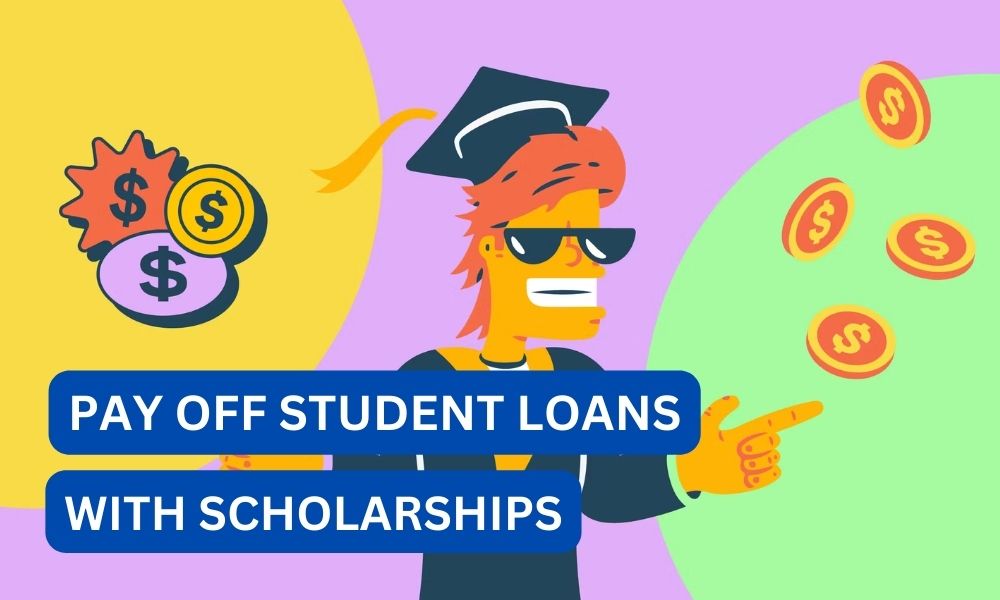Student loans have become a major financial burden for many individuals pursuing higher education. According to the Federal Reserve,the total student loan debt in the United States has reached a staggering $1.7 trillion as of 2021. This has led many students and graduates to wonder if there is a way to pay off their student loans without having to rely solely on their income. One potential solution that has gained popularity in recent years is using scholarships to pay off student loans. In this article, we will explore the question, “Can you pay off student loans with scholarships?” and provide valuable insights for those looking to alleviate their student loan debt.
Contents
The Basics of Scholarships and Student Loans
Before we dive into the question at hand, it is important to understand the basics of scholarships and student loans. Scholarships are financial awards given to students based on academic merit, financial need, or other criteria. They do not have to be repaid, making them an attractive option for students looking to fund their education. On the other hand, student loans are borrowed funds that must be repaid with interest. They can be obtained from the government or private lenders and typically have a fixed interest rate and repayment term.
Read:How Do you win a scholarship?Now that we have a better understanding of these two forms of financial aid, let’s explore whether scholarships can be used to pay off student loans.
The Short Answer
The short answer to the question is yes, it is possible to pay off student loans with scholarships. However, it is not as simple as receiving a scholarship and using it to pay off your entire student loan debt. There are certain factors to consider and strategies to implement in order to effectively use scholarships to pay off student loans.
Factors to Consider
Before applying for scholarships with the intention of using them to pay off student loans, it is important to consider the following factors:
- Eligibility: Not all scholarships can be used to pay off student loans. Some scholarships may have specific restrictions on how the funds can be used, while others may only cover a portion of your student loan debt. It is important to carefully read the terms and conditions of each scholarship to determine if it can be used for this purpose.
- Timing: Scholarships are typically awarded before the start of the academic year, while student loans are disbursed throughout the year. This means that you may not be able to use a scholarship to pay off a student loan that has already been disbursed. It is important to plan ahead and apply for scholarships early on in your academic career.
- Amount: Scholarships may not cover the full cost of your student loans. It is important to carefully calculate the amount of your student loan debt and compare it to the amount of the scholarship you are applying for. If the scholarship does not cover the full amount, you will need to find other sources of funding to cover the remaining balance.
- Repayment Terms: Student loans typically have a fixed interest rate and repayment term, while scholarships do not need to be repaid. This means that using a scholarship to pay off a student loan may not save you money in the long run. It is important to carefully consider the repayment terms of your student loans and compare them to the potential benefits of using a scholarship to pay them off.
Strategies for Using Scholarships to Pay Off Student Loans
Now that we have discussed the factors to consider, let’s explore some strategies for effectively using scholarships to pay off student loans:
Read:How Do you get a full ride scholarship?- Apply for Scholarships Early and Often: As mentioned earlier, scholarships are typically awarded before the start of the academic year. This means that you should start researching and applying for scholarships as early as possible. Additionally, continue to apply for scholarships throughout your academic career, even if you have already received some funding. This will increase your chances of receiving a scholarship that can be used to pay off student loans.
- Focus on Merit-Based Scholarships: Merit-based scholarships are awarded based on academic achievement, talent, or other criteria. These scholarships are typically not restricted in how the funds can be used, making them a good option for paying off student loans. Additionally, they often have higher award amounts compared to need-based scholarships.
- Consider Employer or Industry-Specific Scholarships: Some employers or industries offer scholarships to employees or students pursuing a specific field of study. These scholarships may have fewer applicants and can be a good option for paying off student loans. It is important to research and apply for these scholarships early on in your academic career.
- Use Scholarship Search Engines: There are many scholarship search engines available online that can help you find scholarships that you may be eligible for. These search engines allow you to filter by criteria such as academic major, GPA, and demographic, making it easier to find scholarships that you are qualified for.
- Apply for Multiple Scholarships: It is important to apply for multiple scholarships to increase your chances of receiving funding. However, be sure to carefully read the terms and conditions of each scholarship to ensure that you are not violating any rules or restrictions.
Real-Life Examples
Now that we have discussed the factors to consider and strategies for using scholarships to pay off student loans, let’s look at some real-life examples of individuals who have successfully used this method:
Read:Can you apply for scholarships before applying to college?- Michelle Argento: Michelle Argento, a graduate of the University of Central Florida, was able to pay off her $30,000 student loan debt in just one year by using scholarships. She applied for over 100 scholarships and received a total of $40,000 in funding, which she used to pay off her student loans and cover other expenses.
- Christopher Gray: Christopher Gray, a graduate of Drexel University, was able to pay off his $90,000 student loan debt by using scholarships. He applied for over 70 scholarships and received a total of $1.3 million in funding. He also founded a scholarship search engine, Scholly, to help other students find and apply for scholarships.
- Emily Roberts: Emily Roberts, a graduate of the University of North Carolina at Chapel Hill, was able to pay off her $40,000 student loan debt by using scholarships. She applied for over 50 scholarships and received a total of $100,000 in funding. She also started a blog, The Scholarship System, to share her strategies and help others pay off their student loans with scholarships.
Conclusion:
In conclusion, it is possible to pay off student loans with scholarships, but it requires careful planning, research, and dedication. It is important to consider factors such as eligibility, timing, amount, and repayment terms before using scholarships to pay off student loans. Additionally, implementing strategies such as applying for scholarships early and often, focusing on merit-based scholarships, and using scholarship search engines can increase your chances of receiving funding. Real-life examples have shown that it is possible to pay off large amounts of student loan debt by using scholarships. However, it is important to carefully consider the potential benefits and drawbacks before making a decision. With the rising cost of higher education, using scholarships to pay off student loans can be a valuable tool for individuals looking to alleviate their financial burden and achieve their academic and career goals.









